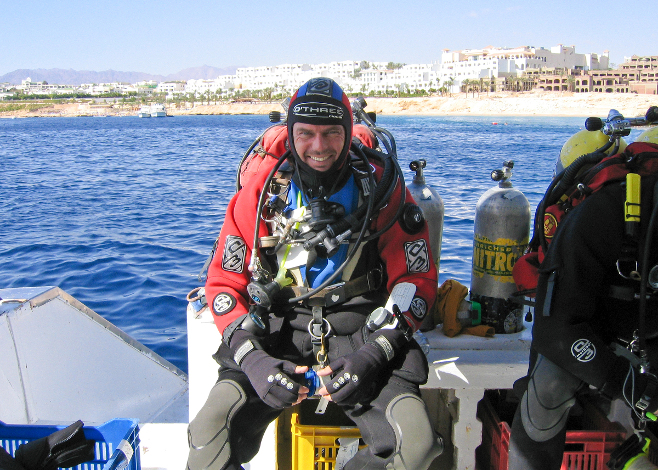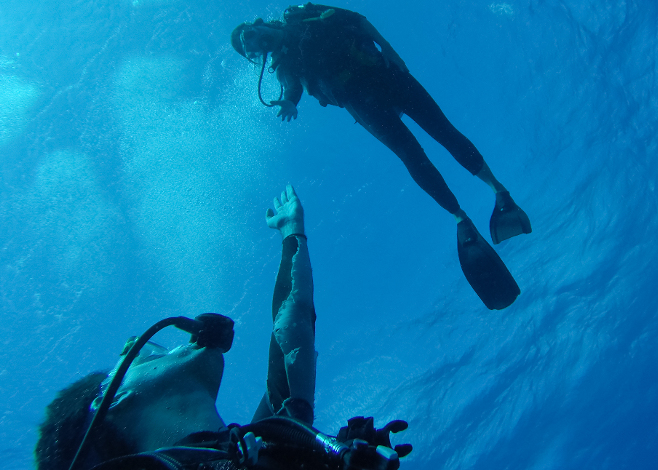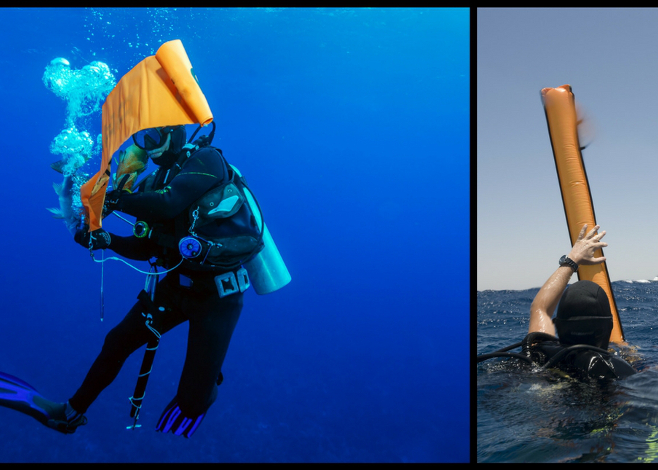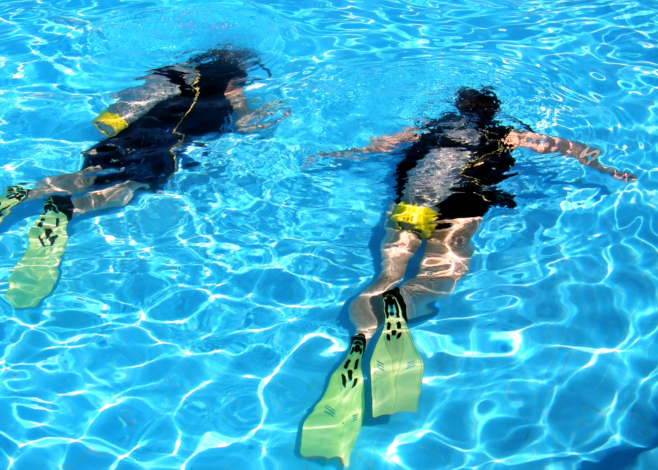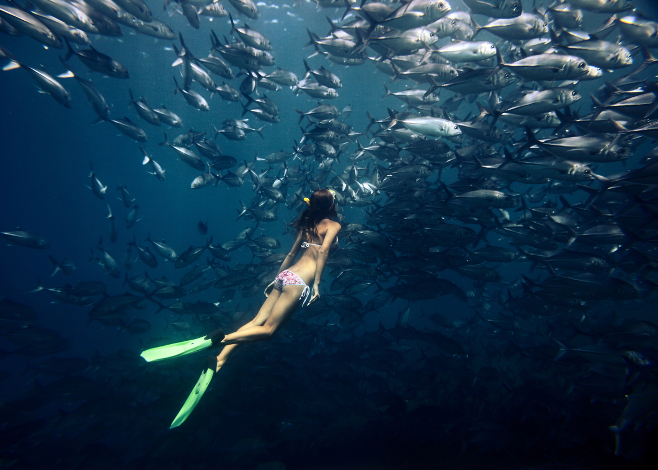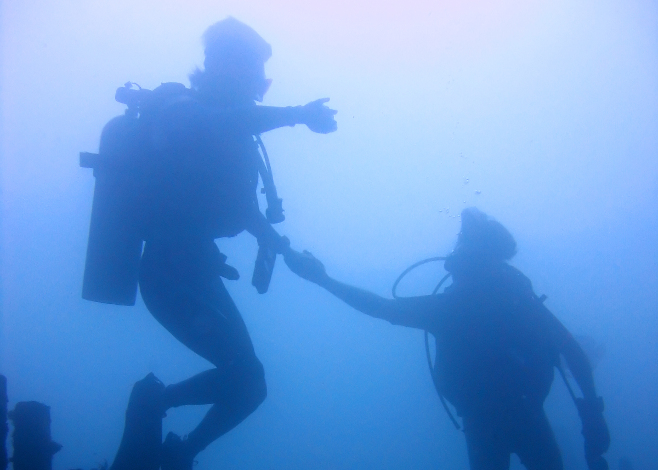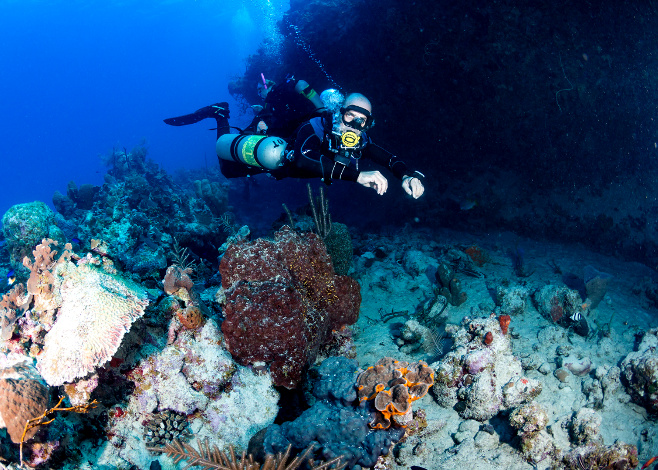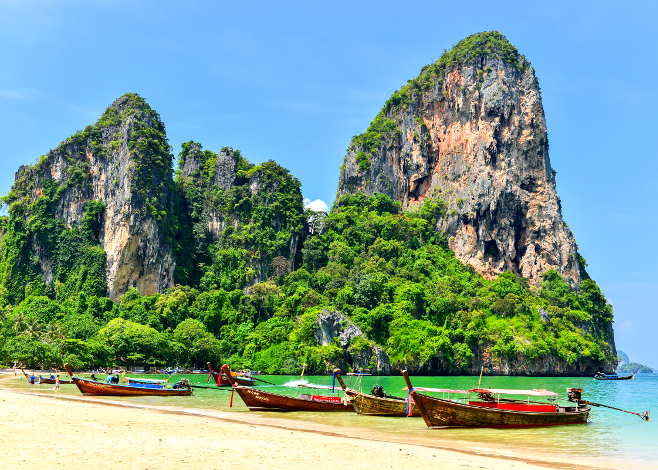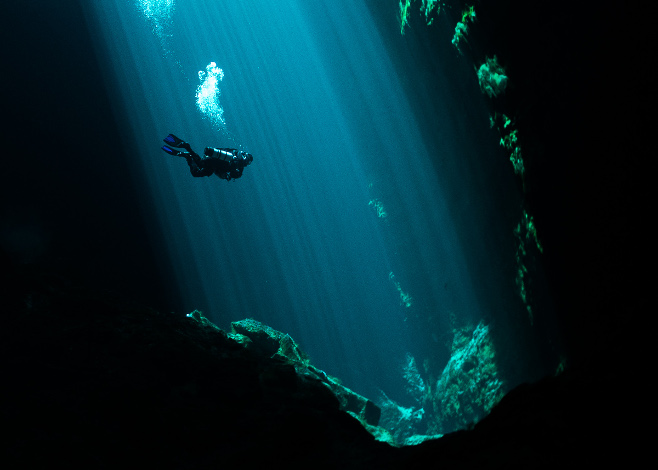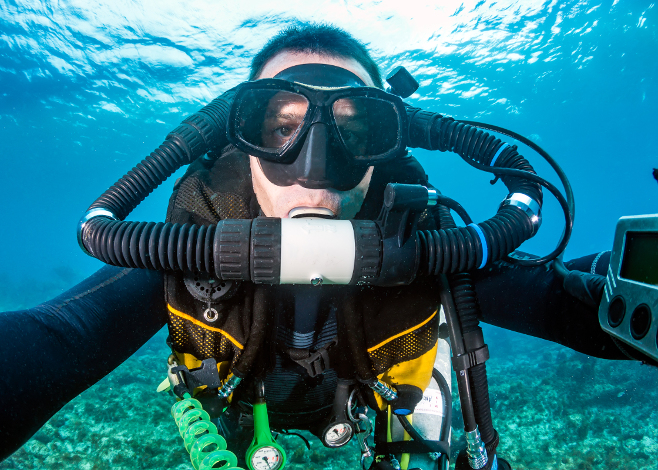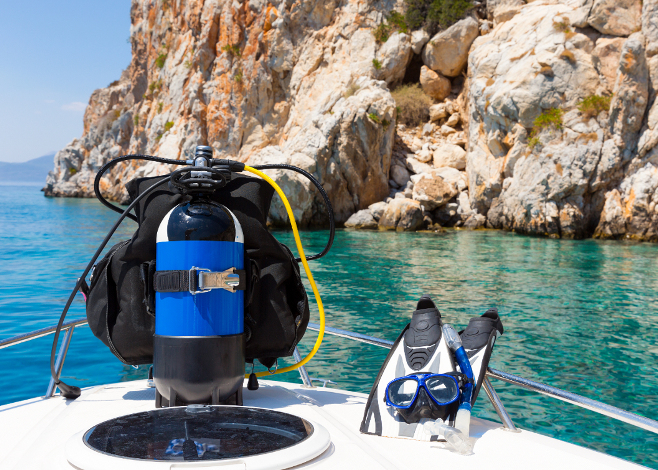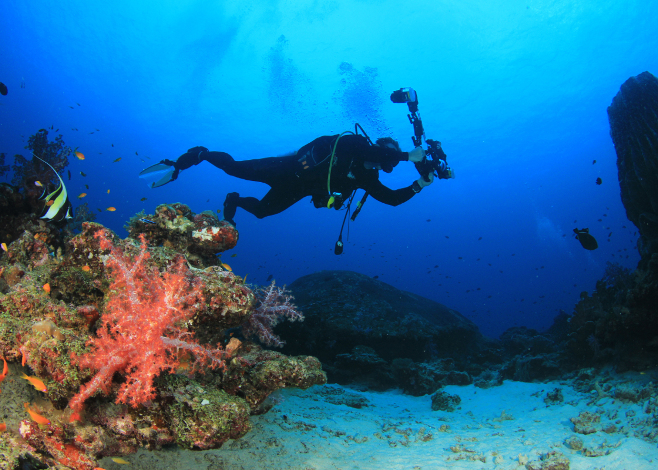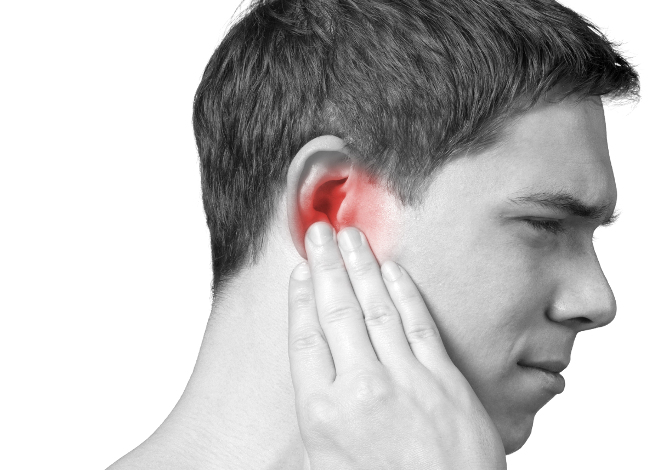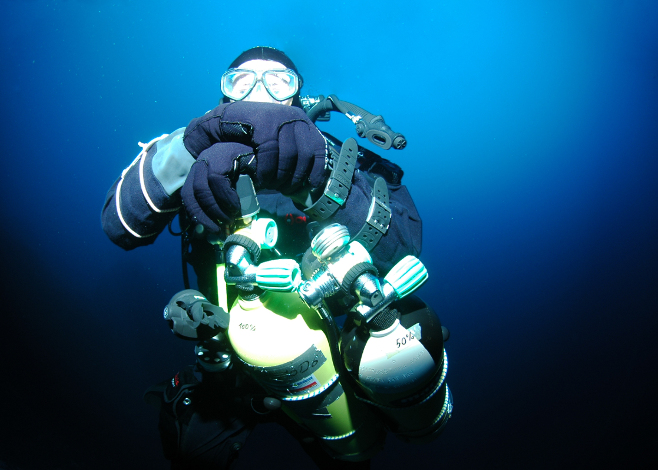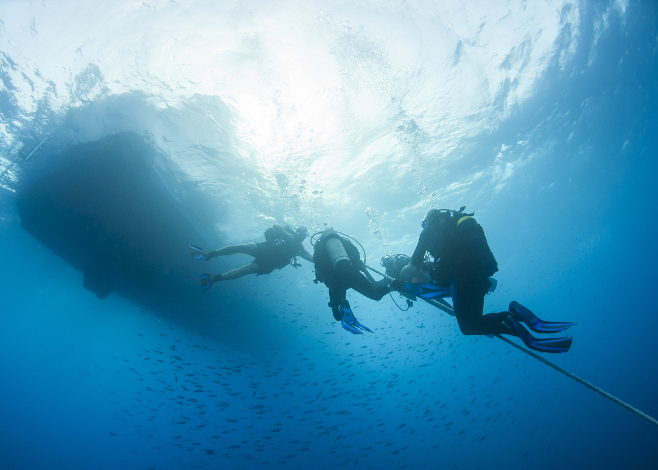Going from “zero to hero” as a diver means moving from an Open Water diver to a professional in a very short space of time. But how does it work in the tech diving world?
Training
The proper role of dive guides is not to keep you safe, but rather to assess the safety and suitability of the dive site and act as a tour guide.
Vertigo when scuba diving means a strange spinning sensation, despite being mostly static in the water. How can you prevent it?
Every diver should carry some sort of surface marker buoy, but what should you look for when buying one? Here are some of the most common features.
If you haven’t been diving for a while or you’ve got a big trip planned, it’s wise to take a scuba refresher course before you blow bubbles again.
You have plenty of friends who don’t dive. Here’s how to explain to them the difference between scuba diving, snorkeling, skin diving and freediving.
What is the Dunning-Kruger effect, and what role does this condition play in dive incidents and accidents?
Ascending slowly from a dive to reduce the risk of DCS is a well-known practice. But exactly how does your ascent profile affect decompression stress?
Learning to scuba dive in fresh water is more common than you may think. What are the pros and cons of certifying in this environment?
Technical diving courses can be intense. There’s lots to learn and when you graduate, all that information is fresh in your mind. What’s next?
Some locations are more beginner friendly than others. What are the world’s best places to learn to scuba dive?
There are a few tricks that recreational divers can pick up from technical divers when it comes to preparing for a dive. Here are a few of the best.
In the latest in our series on how to get started and progress through technical diving, we offer an introduction to rebreather diving and what makes it special.
New divers may feel they should wait for a time before progressing through the diving certifications. How long should it take to go from a novice diver to a divemaster?
Leaving your comfort zone (in gradual and controlled circumstances) can make you a better diver. What are the most challenging PADI specialties to help you grow?
The most common scuba diving-related injury is ear barotrauma. Why does it happen, and how can you avoid it?
In the third installment of our series on technical diving, we’re moving away from beginner-level courses and into the world of trimix diving.
Although the phrase ‘technical diving’ tends to conjure images of deep descents, the initial stages of decompression diving are far less intimidating once you begin.


